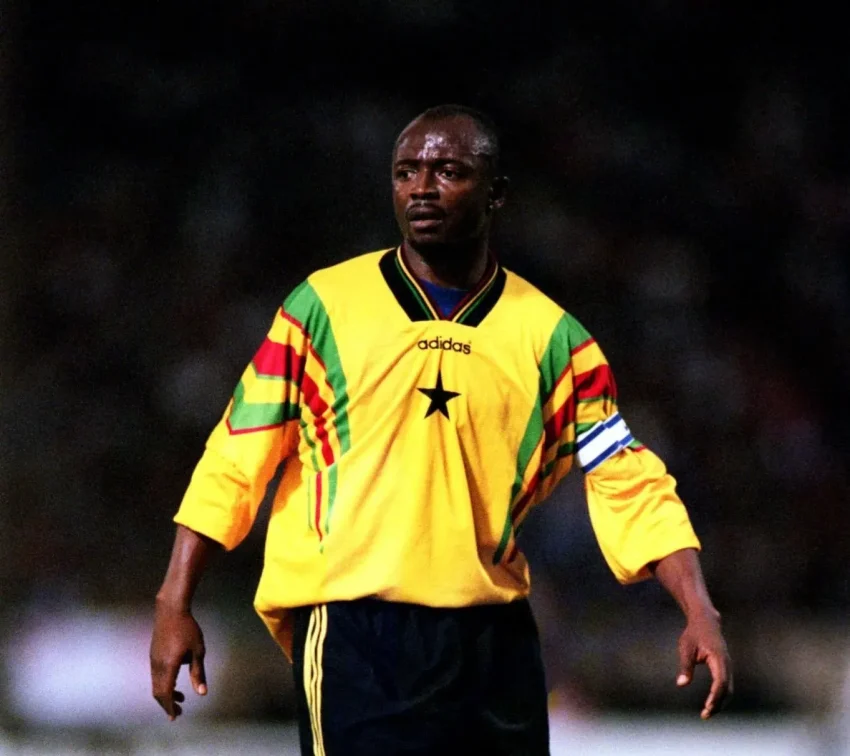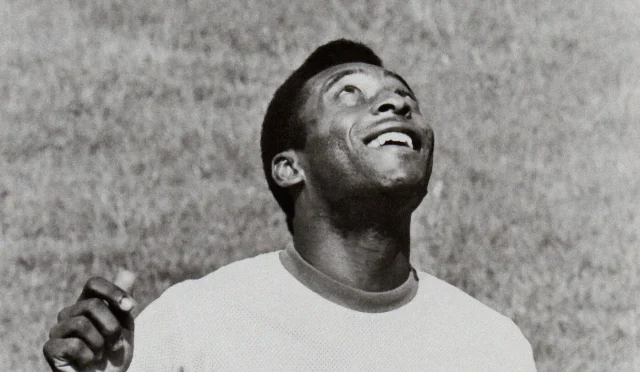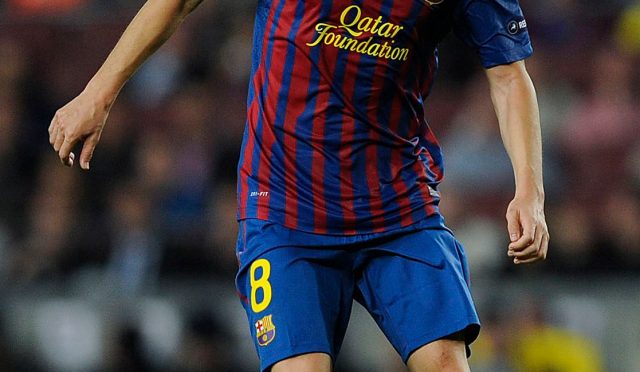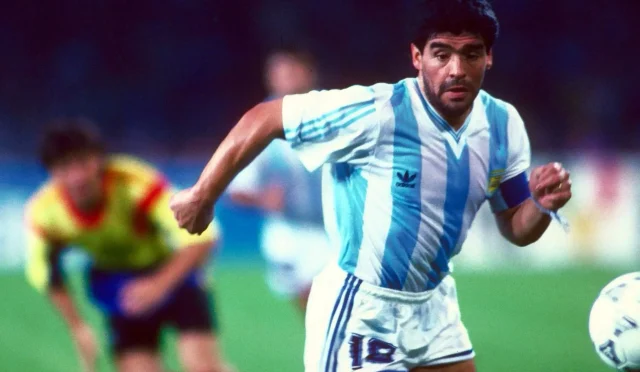Abedi Pelé, born on November 5, 1964, in Ghana, stands as one of the most iconic Ghanaian football players in history. Renowned for his skill and creativity on the pitch, he made waves in European club football particularly during his time at Olympique Marseille, where he became a pivotal figure. Notably, Abedi Pelé is celebrated for winning the prestigious African Player of the Year award three times consecutively from 1991 to 1993, highlighting his dominance in African football. His contributions to the Black Stars history are equally significant, as he was a key player in the national team’s triumph at the African Cup of Nations in 1982. Furthermore, his memorable performance helped secure the Champions League title for Olympique Marseille in 1993, cementing his legacy as a football legend both in Africa and worldwide.
The story of Abedi Ayew Pelé goes beyond mere statistics; it showcases the journey of a pioneering Ghanaian soccer talent who defied expectations and achieved international acclaim. As a celebrated athlete, he significantly influenced the landscape of African football and set a benchmark for future generations. While his exploits with Olympique Marseille remain a focal point, Pelé’s remarkable career also includes notable stints across various clubs in Europe and the Middle East, as well as his undeniable impact on the Ghana national team. This tale not only reflects individual accolades such as the African Player of the Year awards but also embodies a larger narrative of African athletes excelling on the global stage. Abedi Pelé’s legacy is a testament to the rich history of Ghanaian football, showcasing a remarkable blend of talent and determination.
Abedi Pelé: A Pioneer in Ghanaian Football
Abedi Pelé, also known as Abedi Ayew, has left an indelible mark on the world of football, particularly as one of the trailblazers for Ghanaian football players. Born in November 1964, his journey from Real Tamale to the grand stadiums of Europe illustrates not only his personal dedication but also the burgeoning talent within African football during the late 20th century. Winning the African Player of the Year award three consecutive times between 1991 and 1993, Pelé showcased the extraordinary skill and determination that would help elevate Ghana’s stature in international football.
Today, Abedi Pelé is celebrated not just for his individual accolades, but for how his success paved the way for future generations of Ghanaian footballers. His influence extends beyond his playing career, as he inspired many young players in his homeland to pursue football professionally. The narrative of Pelé’s career resonates deeply within the Black Stars history, as he exemplified what it means to represent Ghana on the global stage, fuelling aspirations, and fostering pride in Ghanaian football.
Frequently Asked Questions
What are the significant achievements of Abedi Pelé in his football career?
Abedi Pelé, a Ghanaian football icon, is renowned for being the first player to win the African Player of the Year award three times from 1991 to 1993. His major achievements include winning the Champions League title with Olympique Marseille in 1993 and leading the Black Stars to victory in the African Cup of Nations in 1982.
How did Abedi Pelé contribute to the history of the Black Stars?
Abedi Pelé significantly impacted Black Stars history as a key player during the 1980s and early 1990s, helping Ghana win the African Cup of Nations in 1982. His leadership and skills established him as a legend in Ghanaian football.
What impact did Abedi Pelé have on African football players in Europe?
Abedi Pelé was one of the first Ghanaian football players to make a mark in Europe, primarily through his outstanding performances with Olympique Marseille. His success opened doors for many African players, showcasing their talents on a global stage.
Why is Abedi Pelé referred to as ‘Pelé’?
Abedi Pelé earned his nickname ‘Pelé’ due to his exceptional football talent, which drew comparisons to Brazilian legend Pelé. This nickname signifies his impactful playing style and the high expectations placed on him in football.
What were Abedi Pelé’s club achievements with Olympique Marseille?
During his time with Olympique Marseille from 1989 to 1993, Abedi Pelé helped the team secure multiple French League titles in 1991 and 1992 and played a pivotal role in winning the prestigious Champions League in 1993, marking a historic achievement for the club.
In which countries did Abedi Pelé play during his football career?
Abedi Pelé had a diverse football career, playing in Ghana, France, Italy, Germany, and the United Arab Emirates. He notably played for clubs like Real Tamale, Chamois Niortais, and Lille, but his most notable success was with Olympique Marseille.
| Key Point | Details |
|---|---|
| Birthdate and Place | November 5, 1964, Ghana |
| African Player of the Year Awards | Won three consecutive times (1991–93) |
| Nickname | “Pelé” due to his talent, drawing comparisons to the Brazilian football legend |
| Early Career | Started with Real Tamale in Ghana in 1978 |
| National Team Success | Part of the Black Stars, who won the African Cup of Nations in Libya in 1982 |
| Club Career in France | Played for Chamois Niortais, Mulhouse, Marseille, and Lille from 1986 to 1993 |
| Achievements with Marseille | Key player in winning the French League titles (1991, 1992) and Champions League (1993) |
| Transfer after Scandal | Transferred to Olympique Lyonnais in 1993 after a corruption scandal at Marseille |
| Post-Retirement | Retired in 1998, awarded Ghana’s Order of Volta the same year |
Summary
Abedi Pelé’s illustrious career has made him a prominent figure in football history. He distinguished himself not only as a player but also as a trailblazer for African footballers in Europe. His achievements, including three consecutive African Player of the Year awards, mark him as one of the greatest talents in the sport. Through his time with various clubs in Europe, and his pivotal role in the Ghana national team, Abedi Pelé has left an indelible legacy in the world of football.








